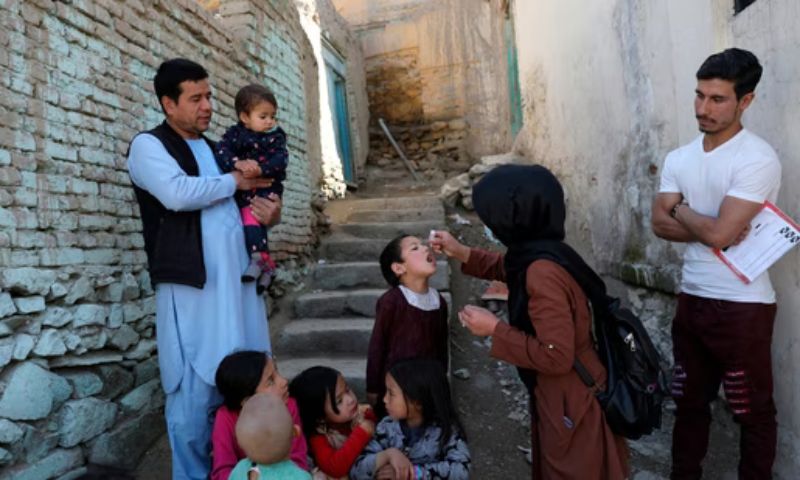KABUL: The United Nations said on Monday that the Taliban have suspended polio vaccination campaigns in Afghanistan, raising serious concerns about the future of global polio eradication efforts.
The suspension comes just as the September immunization campaign was set to begin, jeopardizing years of progress against the disease.
Polio, a highly infectious virus that can lead to paralysis and death, has proven particularly resilient in Afghanistan, where it has not been eradicated. The Taliban’s decision to halt vaccination activities is expected to have significant repercussions both regionally and globally.
No specific reasons were provided for the suspension, and representatives from the Taliban-controlled government were not immediately available for comment. However, the World Health Organization (WHO) has said that talks are underway about shifting from traditional house-to-house vaccinations to site-to-site approaches, such as immunizations conducted in mosques.
Dr. Hamid Jafari from the WHO confirmed that the agency is aware of these talks. “The Global Polio Eradication Initiative is engaged in discussions about the potential shift from house-to-house campaigns to site-to-site vaccination strategies in parts of Afghanistan,” Dr. Jafari stated. “We are currently assessing the scope and impact of any changes to the current vaccination policies.”
The WHO has reported 18 confirmed polio cases in Afghanistan this year, with most concentrated in the south of the country. This marks a significant increase from the six cases recorded in 2023.
Historically, polio vaccination campaigns in Afghanistan have faced numerous challenges. In the southern province of Kandahar, which is home to the Taliban’s supreme leader, vaccination efforts have relied on less effective site-to-site methods rather than the more comprehensive house-to-house approach.
The suspension is a major setback for the global polio eradication initiative, which requires approximately $1 billion annually to sustain its efforts. Despite significant investments and coordination, the initiative has missed several deadlines for eradication and faced challenges from technical errors and unintended consequences of the oral vaccine.























